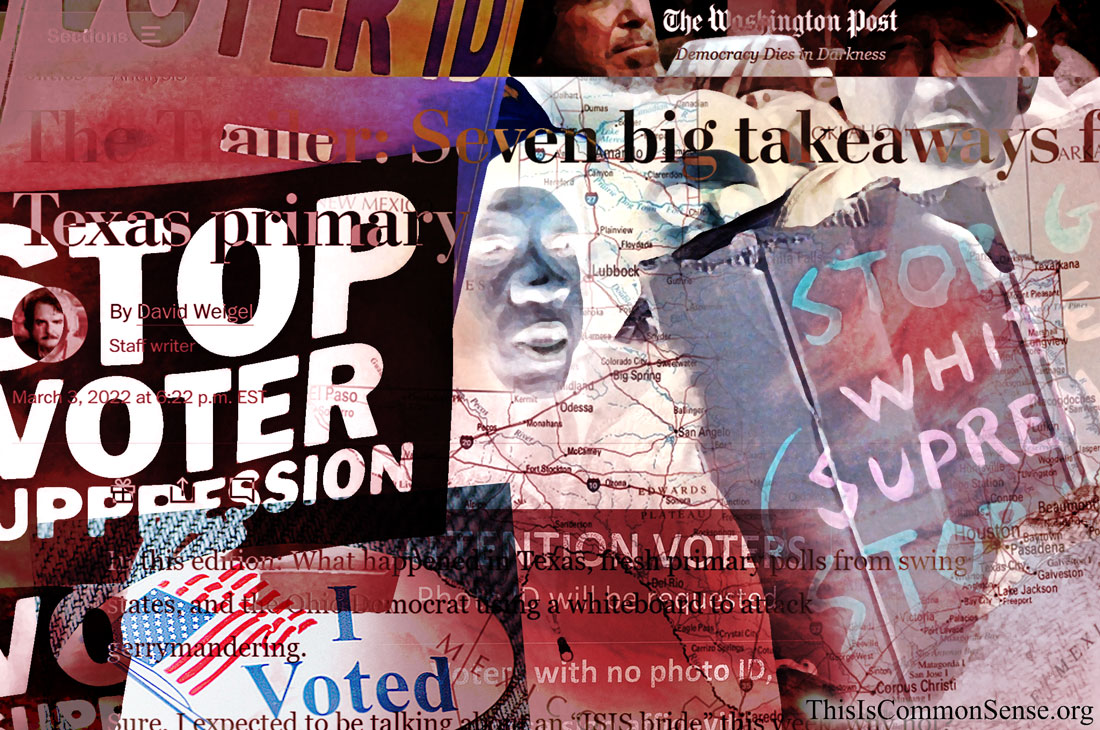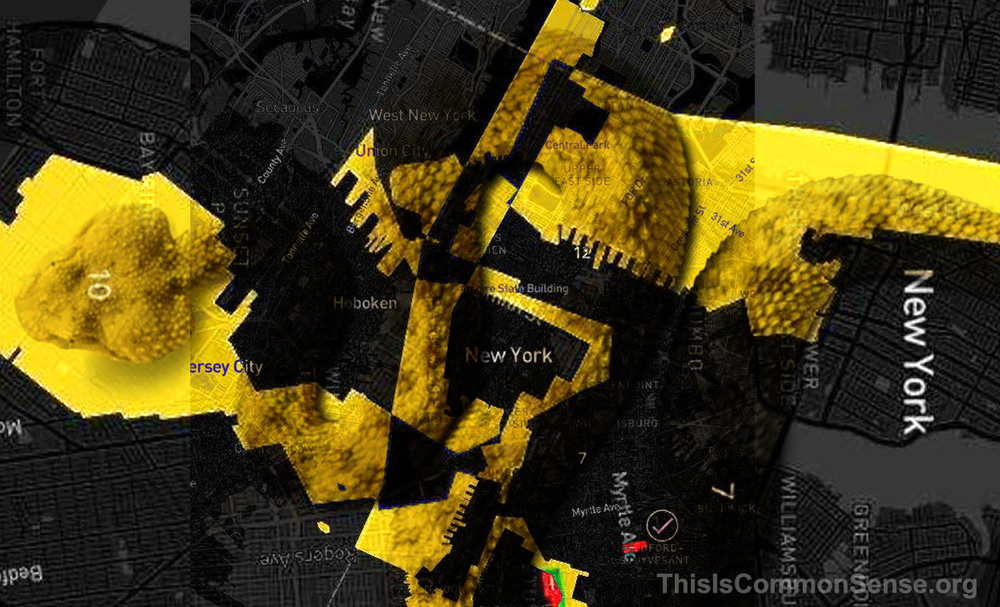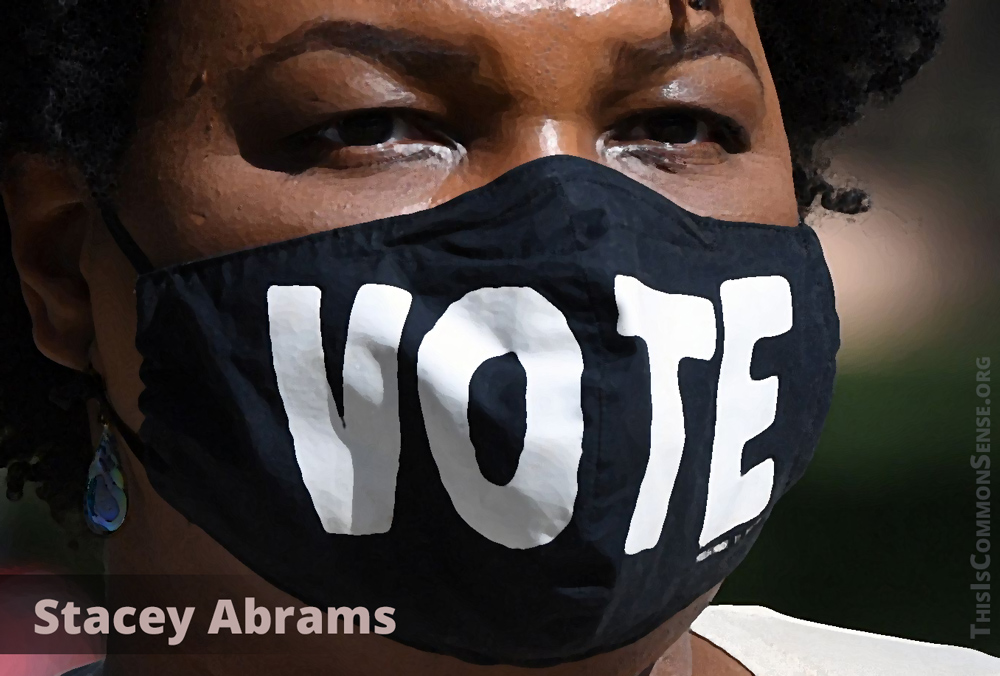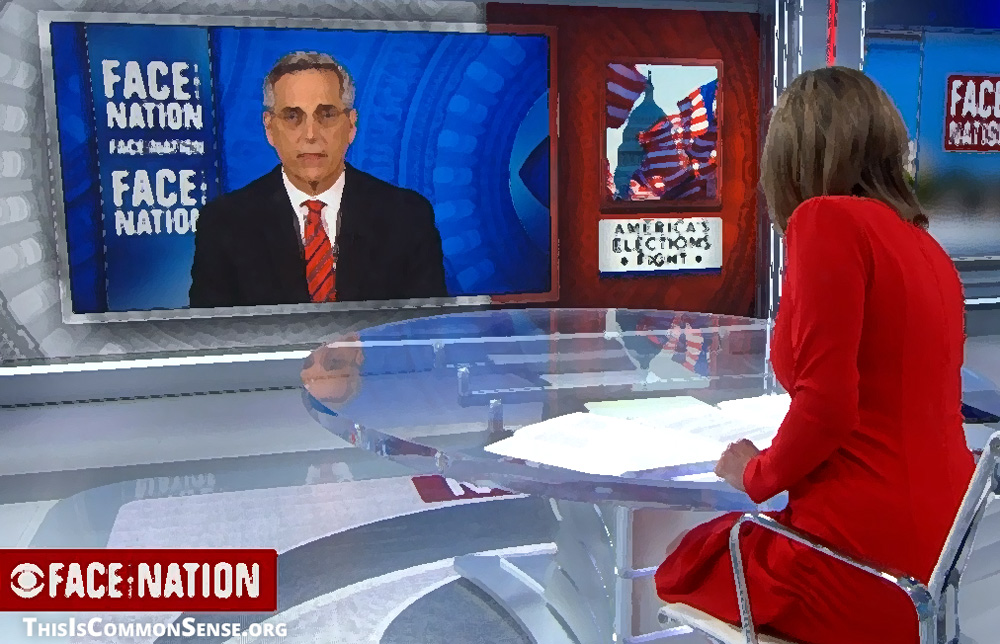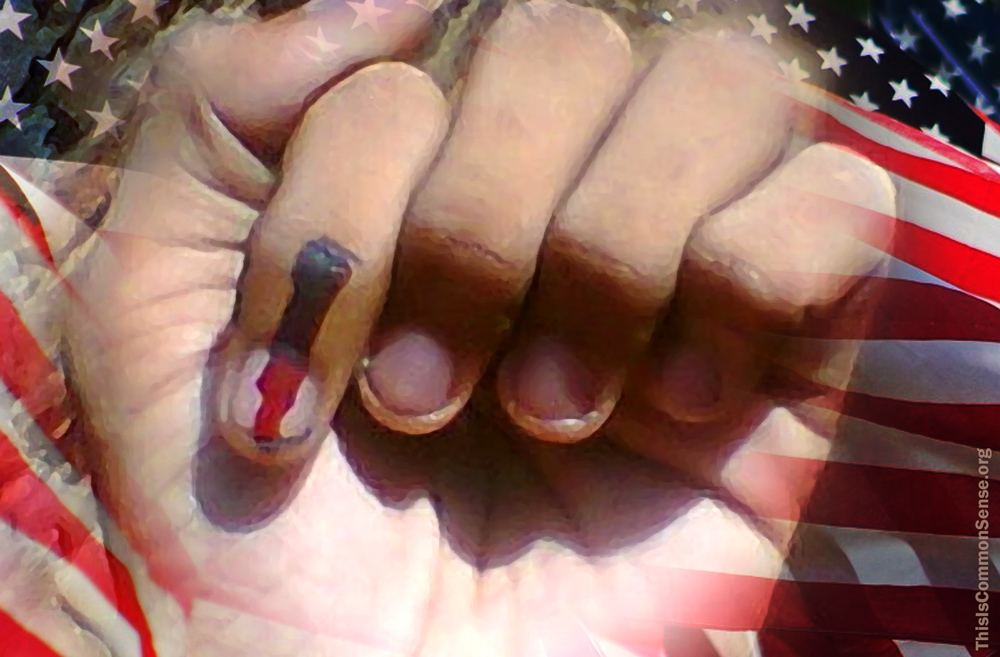Last August, the Texas Legislature considered changes to the state’s election process. Republicans called these changes “election integrity” while Democrats … well, they fled the Lone Star State for six weeks — even hanging out in the Washington swamp — to deny the majority party the quorum it needed to conduct legislative business.
Democratic Rep. Chris Turner said he left “because we are in a fight to save our democracy” against what he dubbed “nationwide Republican vote suppression efforts.”
Eventually, however, Democrats returned home and legislation was passed that The New York Times reported would “cement Texas as one of the most difficult states in the country in which to vote.”
Fast-forward to this year’s March 1 Primary Election, which The Hill reminds us “came amid the state’s new, more restrictive voting laws.”
Well, a funny thing happened on the way to democracy’s grand destruction … Democratic turnout went not down but up! On the Republican side, the number of votes increased dramatically — by roughly 33 percent — “nearly 400,000 more than were cast in the 2018 primary, and more votes than had ever been cast in a midterm GOP primary.”
But there’s more.
In Harris County, the new voting law triggered an audit, which just so happened to find approximately 10,000 “mail ballots” that “were tabulated but not counted,” informs The Associated Press.
Oops! Those Houston-area Democrats and Republicans (roughly 6,000 and 4,000 respectively) would have had their votes obliterated … save for the legislation roundly attacked as “anti-voter.”
So much for suppression.
This is Common Sense. I’m Paul Jacob.
Note: A week after the election, Harris County Election Administrator Isabel Longoria announced her resignation.
—
See all recent commentary
(simplified and organized)
